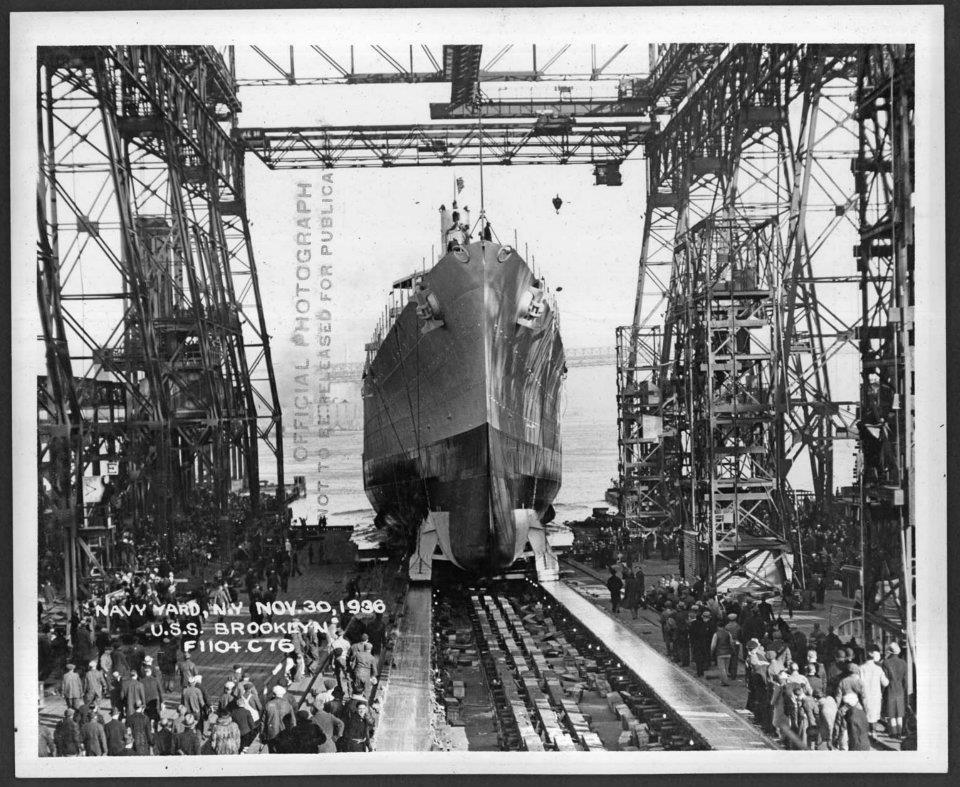Sunset Park’s New Generation of Entrepreneurs Celebrates National Manufacturing Day


Did you know that some of New York City’s finest chocolates are made in Sunset Park?
Today is National Manufacturing Day — and it is being marked in Brooklyn, including Sunset Park, which is home to scores of manufacturing firms. One such company is Jacques Torres Chocolate. The famous chocolatier officially opened its new production facilities in a 40,000 square foot space at the Brooklyn Army Terminal earlier this year.
National Manufacturing Day celebrates the companies and workers across the U.S. that produce physical products and help to stimulate the overall economy. The day has special resonance in Brooklyn, which in the early and mid-20th century was one of the leading urban manufacturing centers in the U.S., and is now experiencing a manufacturing renaissance of sorts.
You can check out some of that renaissance first hand. The public can tour Sunset Park’s Brooklyn Army Terminal — home to over 100 companies in a “wide array of industries, from precision manufacturers to biotech researchers, online retailers to chocolatiers.”
You can also visit Industry City, where Brooklyn-based companies like Blue Marble Ice Cream make some of their products and also have a retail presence. Blue Marble does a major amount of production in Rhode Island as well.

Sunset Park Sets Pace With Young Female Entrepreneurs & New Food Manufacturing Hub
Local manufacturing’s new energy was on view today at Industry City. The waterfront cluster of industrial buildings houses hundreds of firms — manufacturers, and an array of design, tech, and media companies — in six million square feet.
In honor of National Manufacturing Day, Industry City hosted a panel discussion this morning featuring several women principals at local companies which do at least some of their manufacturing and production work in Sunset Park.

In addition to Sarah Green of Blue Marble Ice Cream, speakers included Jen King of Liddabit Sweets, Tamara Mayne of Brooklyn Candle Studio, Kimberly Sevilla of Rose Red and Lavender, Emily Smith of Etsy Manufacturing, and Karen Tappin of Karen’s Body Beautiful.
Tanya Menendez of Maker’s Row moderated the discussion. A spokeswoman for Manufacture NY — a fashion design and production incubator for independent designers — was also on-hand.
These women manufacturers represent a new generation of Brooklyn-based producers. As one noted, “we are changing the face of manufacturing in America.” The business owners spoke about the role technology has played in creating space for women in manufacturing, and the need to bring more women and people of color into management and ownership positions within the sector.
The women encouraged others who are contemplating starting a production firm to “trust your own vision.”
Several of the women spoke about how their gender has motivated them to be better employers — by accommodating workers with children, and providing a living wage and benefits like sick days.
As Kimberly Sevilla noted, “I started my own business because I didn’t want someone to write the rules for me.” Sevilla described how, after having a baby, she felt marginalized as an employee and passed over for opportunities because her former employer assumed she would not have the time to assume more responsibility.
“Business ownership is good for women,” Sevilla added. “There’s more control.”
Jen King, who spoke about the pay-offs that came from treating her employees well, added that “the greatest freedom of being a business owner is you get to call the shots.”
All of these women have launched companies that are relatively young. And more new manufacturing firms are coming to Sunset Park.
In August, the City’s Economic Development Corporation announced that it has designated the 55,000 square foot Brooklyn Army Terminal (BAT) Annex building as a space for 10 growing food manufacturing companies, and that it expects four new companies to move in by the end of the year.
Food Is Largest Manufacturing Sub-Sector In Brooklyn
There are currently almost 80,000 manufacturing jobs in New York City, according to an exhaustive study by the Center for an Urban Future. Manufacturing employment has remained stable and even shown modest growth since 2010 across the five boroughs, CUF notes.
Brooklyn has an estimated 20,000 manufacturing jobs. The largest share of those, the State Comptroller reports, are related to food production — around 5,400 in 2012.
Incredibly — apparel manufacturing, with 3,580 jobs in 2012, accounted for almost one-fifth of the borough’s manufacturing jobs and was the fastest-growing segment between 2010 and 2012, the Comptroller noted.
New Chapter In Brooklyn’s Industrial History
Today’s young Brooklyn manufacturers are building on an amazing industrial heritage.
As described by Channel 13/PBS:
“By 1880, Brooklyn had evolved into one of the leading producers of manufactured goods in the nation. Brooklyn’s largest industry, sugar refining, produced more than half the sugar consumed in the United States.
There were also dockyards, gas refineries, ironworks, slaughterhouses, book publishers, sweatshops, and factories producing everything from clocks, pencils, and glue, to cakes, beer, and cigars. Work, though not always safe or healthy, was widely available.”

Manufacturing in Brooklyn declined precipitously in the second half of the 20th century but, interestingly, is now seen as a contributor to the borough’s booming local economy.
As reported by Crain’s New York, the 2014 study by the State Comptroller’s office found that “manufacturing jobs, while steadily declining across the state and country, edged up in Brooklyn.”



